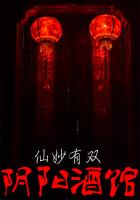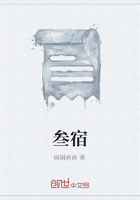At midnight Beauregard withdrew his troops from the defenses that they were too few to hold, and set them to work to throw up fresh intrenchments on a shorter line behind.All night the men worked with their bayonets, canteens, and any tools that came to hand.
It was well for them that the enemy were so exhausted that it was noon before they were ready to advance again, for by this time help was at hand.Anderson, who had succeeded to the command of Long street's corps, and was leading the van of Lee's army, forced his way through Butler's troops and drove him back into the Bermuda Hundred, and leaving one brigade to watch him marched with another into Petersburg just as the attack was recommenced.
Thus reinforced Beauregard successfully defeated all the assaults of the enemy until night fell.Another Federal army corps came up before morning, and the assault was again renewed, but the defenders, who had strengthened their defenses during the night, drove their assailants back with terrible loss.The whole of Lee's army now arrived, and the rest of Grant's army also came up, and that general found that after all his movements his way to Richmond was barred as before.He was indeed in a far worse position than when he had crossed the Rapidan, for the morale of his army was much injured by the repeated repulses and terrible losses it had sustained.The new recruits that had been sent to fill up the gaps were far inferior troops to those with which he had commenced the campaign.To send forward such men against the fortifications of Petersburg manned by Lee's veteran troops was to court defeat, and he therefore began to throw up works for a regular siege.
Fighting went on incessantly between the outposts, but only one great attempt was made during the early months of the siege to capture the Confederate position.The miners drove a gallery under the works, and then drove other galleries right and left under them.These were charged with eight thousand pounds of powder.
When all was ready, masses of troops were brought up to take advantage of the confusion which would be caused by the explosion, and a division of black troops were to lead the assault.
At a quarter to five in the morning of the 30th of July the great mine was exploded, blowing two guns, a battery, and its defenders into the air, and forming a huge pit two hundred feet long and sixty feet wide.Lee and Beauregard hurried to the scene, checked the panic that prevailed, brought up troops, and before the great Federal columns approached the breach the Confederates were ready to receive them.The assault was made with little vigor, the approaches to the breach were obstructed by abattis, and instead of rushing forward in a solid mass they occupied the great pit, and contented themselves with firing over the edge of the crater, where regiments and divisions were huddled together.But the Confederate batteries were now manned, and from the works on either side of the breach, and from behind, they swept the approaches, and threw shell among the crowded mass.The black division was now brought up, and entered the crater, but only added to the confusion, There was no officer of sufficient authority among the crowded mass there to assume the supreme command.No assistance could be sent to them, for the arrival of fresh troops would but have added to the confusion.All day the conflict went on, the Federals lining the edge of the crater, and exchanging a heavy musketry fire with the Confederate infantry, while the mass below suffered terribly from the artillery fire.
When night closed the survivors of the great column that had marched forward in the morning, confident that victory was assured to them, and that the explosion would lay Petersburg open to capture, made their retreat, the Confederates, however, taking a considerable number of prisoners.The Federal loss in killed, wounded and captured was admitted by them to be 4,000; the Confederate accounts put it down at 6,000.
After this terrible repulse it was a long time before Grant again renewed active operations, hut during the months that ensued his troops suffered very heavily from the effects of fever, heightened by the discouragement they felt at their want of success, and at the tremendous losses they had suffered since they entered Virginia on their forward march to Richmond.















